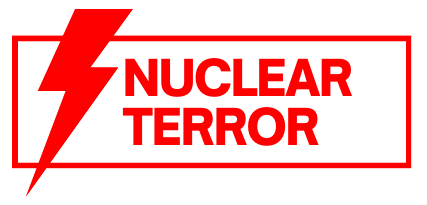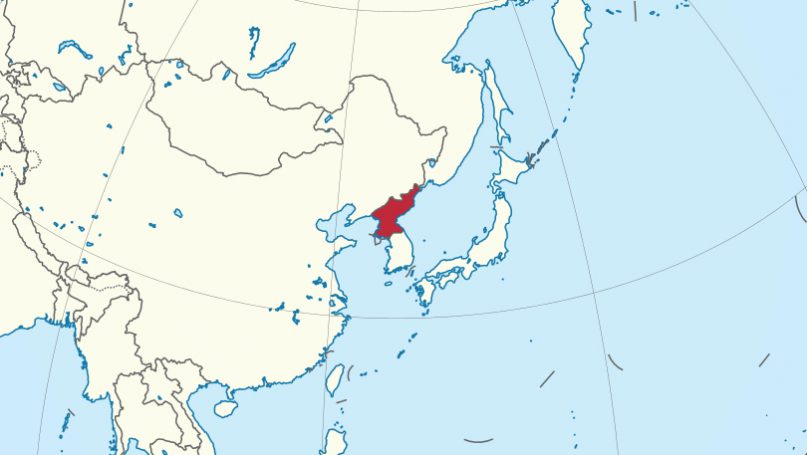As the saying goes, “Where there’s a will, there’s a way.” In the realm of international relations, this adage proves to be true, even when it comes to the Nuclear Non-Proliferation Treaty (NPT). The question at hand is whether a country can withdraw from the NPT, a topic that has garnered significant attention in recent times. The NPT is a critical global agreement designed to prevent the proliferation of nuclear weapons, but it does contain provisions that allow for withdrawal under specific circumstances. This discussion will explore the complexities surrounding NPT withdrawal, the implications it may have on global peace and security, and the measures in place to deter such actions. So, let’s dive into the intricacies of this topic and unravel the potential consequences that may arise from a country’s decision to withdraw from the NPT.
Importance of Deterring NPT Withdrawal
Why is it crucial to deter withdrawal from the NPT? The impact of NPT withdrawal can have serious consequences for international peace and security. It is important to develop preventive measures against withdrawal to send a clear message that violators will face effective measures. The international response to withdrawal should be prompt and appropriate to address the situation. It is also important to address the motivations for withdrawal to understand the reasons behind it and take appropriate action. Ensuring the effectiveness of measures is essential to discourage withdrawal and prevent violators from benefiting from noncompliance. Numerous working papers by various States Party have been published on this subject, highlighting the significance of deterring withdrawal from the NPT. By implementing these preventive measures and addressing the motivations for withdrawal, the international community can work towards maintaining the integrity and efficacy of the NPT, which is crucial for global peace and security.
Right to Withdraw From the NPT
The right to withdraw from the NPT is enshrined in Article X.1 of the Treaty, ensuring that states have the autonomy to make decisions regarding their NPT adherence. However, withdrawal from the NPT can have significant consequences and raises important considerations. Here are five key points to understand:
- Withdrawal consequences: If a state like Iran were to withdraw from the NPT, it would stress the global nonproliferation system. This could potentially lead to a regional nuclear arms race in the Middle East, as other Arab states may also consider withdrawing. The fear of such an outcome is a major deterrent to withdrawal.
- Iran’s rationality: Iran’s leaders understand the risks associated with NPT withdrawal and are likely to hedge on this decision. They are aware that withdrawal could lead to conflict with the US or economic sanctions. Iran may avoid provocations that could trigger such consequences.
- Legal responses: In the event of Iran’s withdrawal, the country would still be held accountable for any treaty violations committed prior to withdrawal. Questions about Iran’s past nuclear weapons work could resurface, and statements challenging the legitimacy of withdrawal could be issued by the US and its partners. Extraordinary meetings of NPT parties could also be called, and Iran’s nuclear file could be reopened at the UN Security Council and the IAEA’s Board of Governors.
- Encouraging international actions: To discourage a state from withdrawing, international actions can be taken. Russia and China could suspend nuclear energy deals with Iran after withdrawal, and the Nuclear Suppliers Group could keep nuclear exports under IAEA verification. Pressure could be exerted on Iran to return any supplied nuclear items. However, it is unlikely that tough UN Security Council actions would be taken due to opposition from Russia and China.
- Regional nuclear arms race: One of the most concerning consequences of NPT withdrawal is the potential for a regional war involving nuclear weapon states. If Iran were to acquire nuclear weapons, it could lead to increased tensions with Israel, which may feel compelled to strike Iranian nuclear facilities. This could escalate into a larger conflict, posing significant risks to regional and global security.
Making Withdrawal Unattractive to Violators
To discourage violators from withdrawing from the NPT, it is imperative to implement effective international measures that make withdrawal an unattractive option. The international response to NPT withdrawal should include clear consequences for violators. One key measure is the establishment of robust redress avenues for addressing the grievances of other States Parties. This could involve convening extraordinary meetings of NPT parties to discuss the situation and consider appropriate actions. Additionally, the International Atomic Energy Agency (IAEA) should play a crucial role in ensuring the continuation of safeguards during withdrawal. The IAEA and its Board of Governors should be informed of all relevant information regarding the withdrawal and take steps to prevent the violator from benefiting from their association with the Agency. Safeguards should continue until any past violations have been fully remedied.
In addition, nuclear supplier states should cease nuclear supply and cooperation with a withdrawing violator, unless endorsed by the UN Security Council. This would prevent the violator from benefiting from previously imported nuclear materials and equipment. Nuclear suppliers should also reserve the right to terminate supply agreements with violators. By taking these actions, the international community can dissuade states from withdrawing while in violation of the NPT and ensure that there are consequences for their actions.
Role of the International Atomic Energy Agency (IAEA)
The International Atomic Energy Agency (IAEA) plays a crucial role in ensuring the integrity and effectiveness of the Non-Proliferation Treaty (NPT) by overseeing safeguards during the withdrawal process. The IAEA’s role includes the following:
- Continuation of safeguards: The IAEA ensures that safeguards measures continue to be implemented during the withdrawal process to prevent any unauthorized use or diversion of nuclear materials.
- Informing the Security Council: The IAEA informs the UN Security Council of all relevant information regarding the withdrawal, including the reasons and motivations behind it.
- Preventing violator benefits: The IAEA takes steps to prevent a withdrawing state from benefiting from its association with the agency, such as halting the use of supplied nuclear materials and equipment and securing their elimination or return.
- Independent safeguards agreements: The IAEA encourages withdrawn states to conclude independent safeguards agreements to ensure ongoing monitoring and verification of their nuclear activities.
- Redress in case of withdrawal: The IAEA urges the international community to seek avenues of redress in case of withdrawal by a violator, including reviewing the matter at the Security Council and considering potential consequences.
Actions by NPT Nuclear Supplier States
During the withdrawal process, NPT nuclear supplier states have a crucial role to play in taking effective actions to deter violators and prevent them from benefiting from noncompliance and withdrawal. These supplier states have certain obligations when it comes to nuclear cooperation and nonproliferation measures. One of their primary responsibilities is to enforce sanctions and control the export of nuclear materials and equipment.
Nuclear supplier states should immediately cease nuclear supply and cooperation with a withdrawing violator, unless it is endorsed by the UN Security Council. They should ensure that the withdrawing party does not benefit from previously imported nuclear materials and equipment. Additionally, they should take steps to halt the use of supplied items and secure their elimination or return.
Furthermore, nuclear suppliers should reserve the right to terminate supply agreements with violators. By taking these actions, supplier states can send a clear message that noncompliance and withdrawal from the NPT will not be tolerated.
The effectiveness of these measures relies on the cooperation and commitment of all nuclear supplier states. It is essential for them to actively enforce sanctions, strengthen nuclear export control, and ensure that violators face consequences for their actions. By doing so, they can contribute to the maintenance of the integrity and efficacy of the NPT and promote international peace and security.
Transfer of Nuclear Weapons
Nuclear weapons transfer poses significant challenges to international nonproliferation efforts and requires strict monitoring and control to prevent their proliferation. To address this issue, several measures have been put in place to regulate the transfer of nuclear weapons. These include:
- Non proliferation obligations: States Parties to the NPT commit to not transfer nuclear weapons or control over such weapons directly or indirectly. Non-nuclear-weapon States also undertake not to receive the transfer of nuclear weapons or control over them, and not to manufacture or acquire nuclear weapons themselves.
- Safeguards agreements: Non-nuclear-weapon States Parties to the NPT must accept safeguards for the exclusive purpose of verifying their compliance with the Treaty. These safeguards are negotiated with the International Atomic Energy Agency (IAEA) and apply to all source or special fissionable material within the State’s territory.
- Nuclear disarmament negotiations: The NPT also emphasizes the importance of nuclear disarmament negotiations. Parties to the Treaty commit to pursuing negotiations on effective measures for the cessation of the nuclear arms race and nuclear disarmament.
- Peaceful use of nuclear energy: The NPT recognizes the right of all Parties to develop research, production, and use of nuclear energy for peaceful purposes. Parties are encouraged to facilitate the exchange of equipment, materials, and scientific information for peaceful uses of nuclear energy.
- Strengthening safeguards and verification: The implementation of safeguards should comply with the Treaty and not hinder economic or technological development. Non-nuclear-weapon States Parties must not provide source or special fissionable material without subjecting it to the required safeguards.
These measures aim to ensure that the transfer of nuclear weapons is strictly regulated and that non-proliferation obligations are upheld. By maintaining transparency, promoting peaceful use of nuclear energy, and strengthening safeguards, the international community can work towards preventing the proliferation of nuclear weapons.
Safeguards and Verification
To ensure the strict regulation and verification of nuclear weapons transfers, the subtopic of Safeguards and Verification becomes crucial in upholding non-proliferation obligations and preventing the proliferation of nuclear weapons. The International Atomic Energy Agency (IAEA) plays a vital role in overseeing compliance with nonproliferation measures through its safeguards system. This system involves the implementation of safeguards agreements between the IAEA and non-nuclear-weapon states, which aim to verify the peaceful nature of their nuclear activities and ensure that no diversion of nuclear materials occurs. The IAEA conducts inspections and uses various verification techniques, such as the analysis of nuclear material samples and the monitoring of nuclear facilities, to ensure compliance with these agreements.
To provide a visual representation of the safeguards and verification process, the following table illustrates the key components of IAEA safeguards:
| IAEA Safeguards Components | Description |
|---|---|
| Safeguards Agreements | Legal agreements between the IAEA and non-nuclear-weapon states that outline the scope and implementation of safeguards measures. |
| Inspections | Regular on-site visits by IAEA inspectors to verify the accuracy of nuclear material accounting and verify the absence of any undeclared nuclear activities. |
| Monitoring | Continuous monitoring of nuclear facilities through various techniques, such as surveillance cameras and remote monitoring systems, to detect any unauthorized activities or access. |
International cooperation is essential for the effective implementation of safeguards and verification. States must cooperate with the IAEA by providing timely and accurate information, granting access to nuclear facilities, and fulfilling their obligations under safeguards agreements. This cooperation ensures transparency and enhances confidence in the peaceful nature of nuclear activities. By adhering to IAEA safeguards and verification measures, states demonstrate their commitment to nonproliferation and contribute to global efforts in preventing the spread of nuclear weapons.


